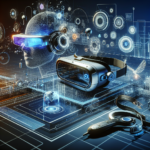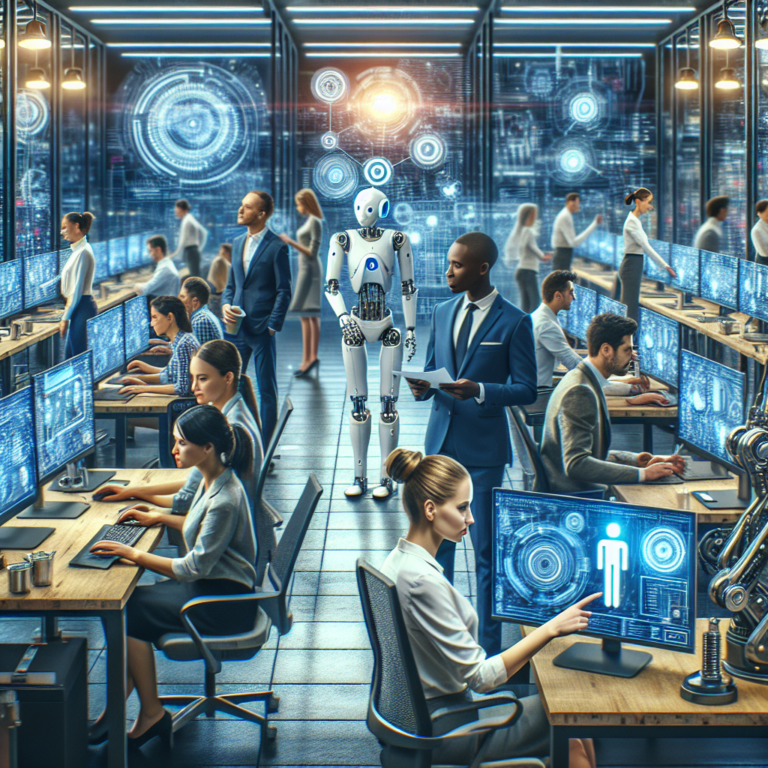AI and Employment: Redefining the Future of Work Today 🌐
In today’s rapidly evolving world, the intersection of artificial intelligence (AI) and employment is a hot topic, influencing the future of work. Recent insights from economists at the World Economic Forum (WEF) highlight that AI’s effects on jobs may mirror historical technological revolutions. While certain individuals could face job displacement, the overall expectation is that AI will create more job opportunities than it eliminates.
The Potential and Challenges of AI in the Workforce
Despite the optimistic outlook, it is essential to consider that the impact of AI could be far more disruptive than previous technological changes. Historically, tech revolutions have primarily transformed physical labor, but AI uniquely targets cognitive tasks, which means potential widespread job losses.
The WEF economists draw parallels with past advancements, such as the transition from horses to automobiles and the impact of machinery on agriculture. Microsoft president Brad Smith previously articulated how this shift resulted in unexpected job creation, with sectors like manufacturing and infrastructure development blooming in response to new technologies.
- For example, between 1910 and 1950, the auto industry generated 6.9 million net new jobs in the U.S.
- This growth accounted for roughly 11% of the workforce at the time, revealing how technological advancements contributed to job creation.
- However, cultural changes and societal movements also played a crucial role in shaping these outcomes, indicating that the results were not solely driven by technology.
AI’s Unique Position in Job Transformation
Today, the dynamic is different. The drive for technological advancements is fueled not only by innovative minds but also by technological accelerationists, who push for rapid progress in AI. Although there are calls for responsible AI usage, the absence of stringent regulations in places like the U.S. can lead to unpredictable consequences as AI technologies develop.
One significant difference between AI and prior technological revolutions is the ability to outsource cognitive work in addition to manual labor. AI systems can undertake complex problem-solving, decision-making, and creative tasks that were historically exclusive to humans. This ability introduces new challenges—those associated with the displacement of skilled workers across various industries.
Is AI Here to Augment or Replace Jobs? 🤖
The concern regarding job displacement is evident. A recent survey showed that:
- 74% of IT professionals fear that AI tools could render many of their skills obsolete.
- 69% of respondents expressed apprehension about potential replacement by AI.
While many believe that AI is designed to enhance human capabilities rather than replace them, this notion may stem more from current technology limitations than a definitive prediction of the future. Notably, 35% of executives are already investing in AI technology with plans to eliminate unnecessary positions, signaling a shift in workplace dynamics.
Reports from the Federal Reserve Bank of Richmond have highlighted that many firms are integrating AI and automation in efforts to reduce employee numbers. In contrast, findings from the Dallas Federal Reserve Bank reveal that while AI aids in enhancing productivity, it hasn’t yet led to substantial employment changes.
Shifts in Employment Landscape
Even when immediate changes in workforce numbers are not overwhelmingly apparent, shifts are underway. A notable study indicated that AI-augmented call center workers perform as efficiently as their seasoned counterparts, showcasing AI’s potential to boost productivity. Additionally, research has shown that software engineers assisted by AI can double their coding speed.
These transformations might not drastically change the overall number of call center roles or software engineering jobs, but they could redefine the composition of the workforce:
- New employees equipped with AI tools can match or exceed the performance of experienced professionals, democratizing access to these roles.
- The potential consequences of these changes include a decrease in the value placed on experience, leading to downward pressure on wages and increased turnover rates.
The Future Job Market: New Opportunities Await 🚀
As AI displaces traditional roles, it simultaneously opens doors for new employment opportunities. For instance, financial firms may find themselves needing AI managers and compliance officers to navigate regulatory frameworks associated with AI implementation.
Some emerging roles could include:
- AI Risk Manager: Responsible for assessing and mitigating potential risks associated with AI use in business.
- AI-Human Interface Designer: Focused on creating user-friendly interactions between AI systems and humans.
- AI Orchestrator: A visionary role that ensures a cohesive and ethically guided integration of various AI tools for optimal productivity and quality outputs.
The interplay between AI advancements and employment will undoubtedly present a complex and multifaceted dynamic. While historical precedents can provide some insight, the distinctive nature of AI—especially its capability to remove human cognition from the equation—signals that we are navigating uncharted waters.
The future of work appears to be a blend of enhancement and displacement, with new roles gradually emerging as traditional careers face the wave of automation. Despite the unknowns, one thing is clear: as we move forward, relying solely on the past as a roadmap for predicting the future could be limiting. The evolving landscape of work promises to reshape industries, careers, and the very fabric of our workplaces in ways we have yet to fully comprehend.
Stay tuned for more insights on how AI will continue to redefine our employment landscape and empower individuals across various fields!




0 Comments